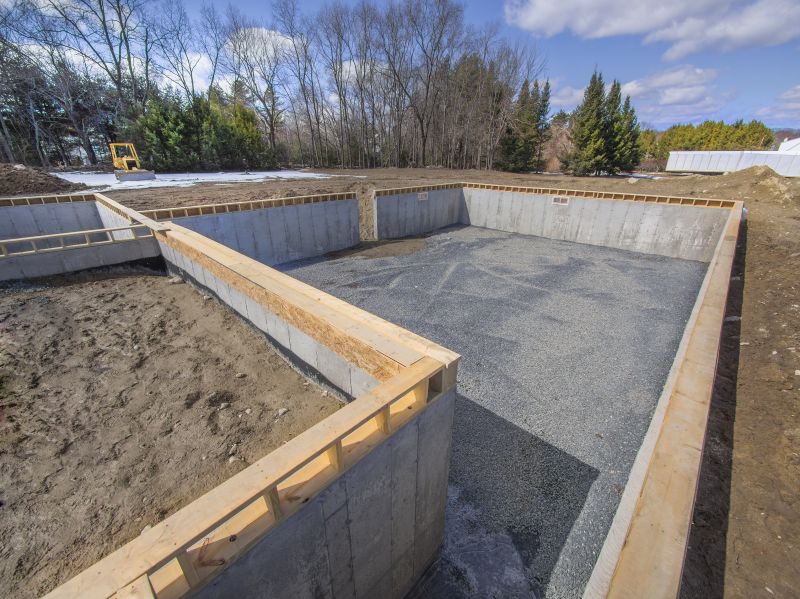Leading Foundation Pouring Materials For Structural Integrity
Select from high-quality products that support strong, long-lasting foundations for a variety of building projects.
 Foundation pouring is a critical step in construction and renovation projects, requiring precise tools and materials to ensure stability and durability. The selection of products for foundation pouring can greatly influence the quality of the finished structure. From basic mixing equipment to advanced pouring systems, a variety of tools are available to accommodate different project sizes and complexities. Understanding the features and functionalities of these products helps in making informed decisions to achieve optimal results.
Foundation pouring is a critical step in construction and renovation projects, requiring precise tools and materials to ensure stability and durability. The selection of products for foundation pouring can greatly influence the quality of the finished structure. From basic mixing equipment to advanced pouring systems, a variety of tools are available to accommodate different project sizes and complexities. Understanding the features and functionalities of these products helps in making informed decisions to achieve optimal results.
Types of Products For Foundation Pourings
Portable Concrete Mixers
Ideal for small to medium projects, portable mixers provide mobility and ease of use for on-site mixing.
Stationary Concrete Mixers
Designed for larger projects, stationary mixers offer high capacity and continuous mixing capabilities.
Concrete Pumping Equipment
Helps in transferring mixed concrete efficiently to the pouring site, especially in hard-to-reach areas.
Wheelbarrows and Pouring Buckets
Essential for manual pouring and transportation of concrete, especially in small-scale projects.
Vibrators and Compactors
Used to remove air pockets and ensure proper compaction of poured concrete for stability.
Formwork Systems
Reusable or disposable molds that shape and contain the poured concrete during curing.
Measuring and Leveling Tools
Includes laser levels, measuring tapes, and screeds to ensure accurate and level pours.
Concrete Trowels and Finishing Tools
Used to smooth and finish the surface of the poured concrete for a clean finish.
Water Curing Systems
Maintains optimal moisture levels during curing to prevent cracks and ensure strength.
Additive Dispensers
Helps in accurately mixing additives or admixtures into the concrete for specific properties.
Popular Choices
Favored for their mobility and ease of use on various site sizes, offering flexible mixing options.
Commonly used to ensure proper compaction and reduce air pockets in poured concrete.
Popular for transferring concrete efficiently in large or complex pours, especially in tight spaces.
A staple for manual transportation and pouring of concrete in smaller projects.
Widely used for ensuring accurate, level pours and consistent foundation surfaces.
Popular for their reusability and ease of setup in shaping poured concrete.
Preferred for achieving smooth, professional surface finishes on poured concrete.
Selected for maintaining proper curing conditions and preventing cracks.
Trending for precise incorporation of admixtures to enhance concrete properties.
Various factors such as ease of use, portability, mixing capacity, and compatibility with different concrete types are important considerations when choosing foundation pouring products. Properly selected tools can streamline the pouring process, reduce waste, and improve the overall quality of the foundation. Whether working on small residential projects or large commercial developments, having the right equipment ensures that the foundation is poured efficiently and accurately.
Investing in quality foundation pouring products also involves considering safety features and ergonomic designs. Features like non-slip handles, stable bases, and clear measurement markings can enhance safety and ease of operation. Additionally, compatibility with other construction tools and accessories can improve workflow and reduce the need for additional equipment. Ultimately, choosing the right products tailored to the specific needs of the project can contribute to a smoother construction process and a more reliable foundation.
Key Buying Considerations
- Project scale and volume requirements to select appropriately sized equipment.
- Ease of transportation and mobility, especially for on-site use.
- Durability and build quality to withstand heavy use and harsh conditions.
- Compatibility with different types of concrete mixes and additives.
- Ease of cleaning and maintenance to prolong equipment lifespan.
- Safety features such as stable bases, non-slip handles, and guards.
- Ease of operation, including intuitive controls and ergonomic design.
- Availability of replacement parts and customer support.
- Budget constraints balanced with quality and features.
- Versatility of the product for different stages of the pouring process.
- Storage and setup requirements for equipment on-site.
- Environmental conditions where the equipment will be used, such as outdoor exposure.
- Compliance with safety standards and construction regulations.
- Compatibility with other tools and accessories used during foundation work.
- User reviews and ratings to gauge reliability and performance.
This page contains affiliate links. We may earn a commission for purchases made through these links, which helps support our content creation.
